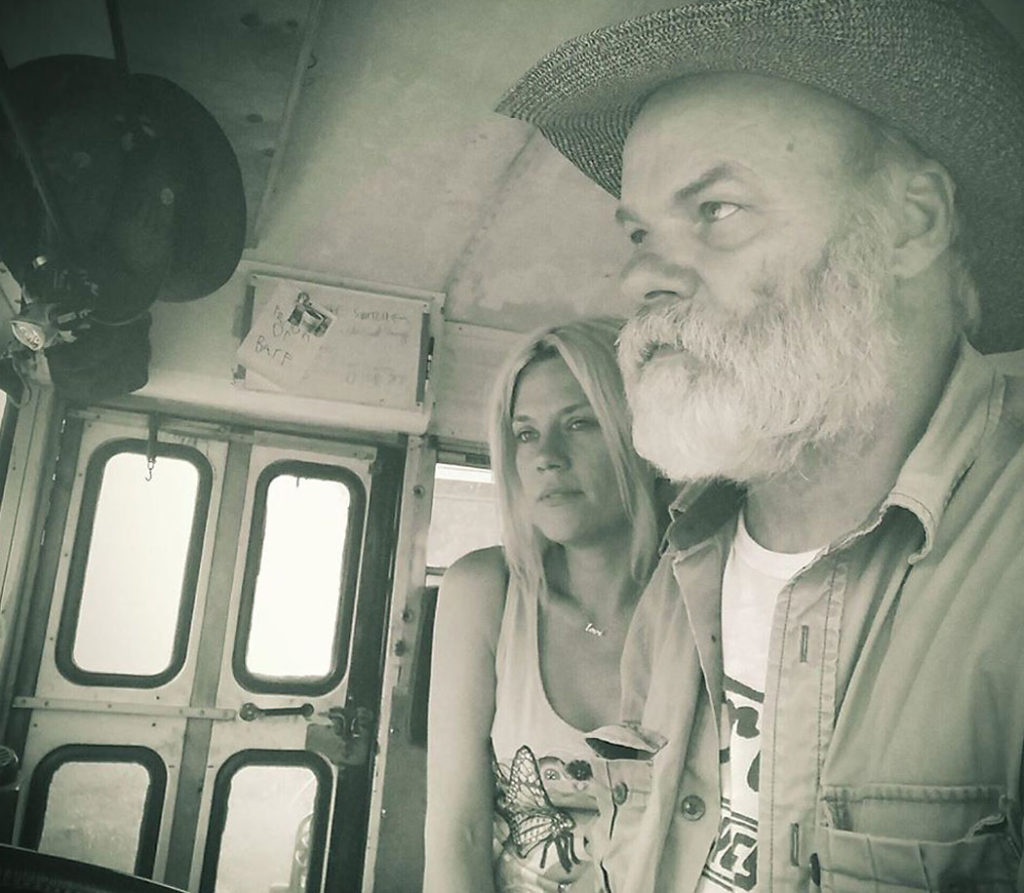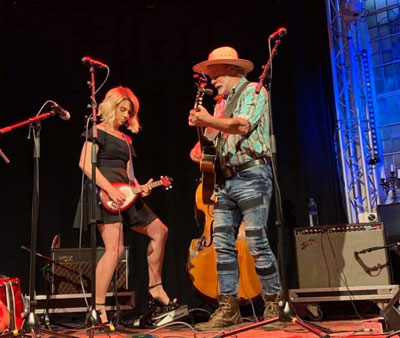
Fred Eaglesmith is a true musical troubadour. He left the farm and his eight brothers and sisters as a young teenager and took to the road playing guitar and writing songs. Eaglesmith is 62 years old today and still at it, although now he travels and performs with his wife, the multi-instrumentalist Tif Ginn.
“We left on tour January 8,” Eaglesmith said over the phone from his South Ontario, Canada, home. “If the coronavirus hadn’t stopped us, we would have put on 30,000 miles by mid April.” He loves his lakeside house and rarely has time to enjoy it, so this was the first spell in the last 40 years that he’s had a real vacation—a staycation in this case—because he’s always had the itch to play live.
“Last year I was honored to perform at the Grand Ole Opry in Nashville,” Eaglesmith said. “The next night we played some small gig at a rock club outside of town for about 50 people. It doesn’t matter how big the audience is. What matters is the magic that happens when the music starts.”

Eaglesmith and his wife had planned to play at CSPS in Cedar Rapids on June 12 (now postponed). He’s performed at that venue at least twice before and noted that Iowa audiences enjoy the rural concerns of many of his songs.
Anyone who has attended an Eaglesmith show will tell you that he is more than just a musician. He’s a storyteller and a joker who will spend as much if not more time talking than playing. “I didn’t start out that way,” he said. “I used to just sing my songs, but it got too intense. Many of my songs are sad—about life’s troubles and the technological changes we have experienced that have made us more alienated from the land and each other.”
Eaglesmith started to throw in jokes. He prefers the classic comedians of the 1960s, such as Don Rickles, and worked up a spiel to go with his act. He tells old corny jokes instead of topical ones.
“I don’t try to be hip or serious,” Eaglesmith said. “I am for the ridiculous! It’s important to smile at yourself and to laugh.” Even before the coronavirus impacted modern life, he thought that too many people were living much too seriously. The world had become a 24/7 kind of place where relaxing had become a social sin. He found pleasure in helping others chill out as he told old yarns about skeletons that couldn’t hold their liquor and bartenders that couldn’t serve sandwiches. The hoarier the tale, the lamer the pun, the better.
Despite that, Eaglesmith has an earnest side. He pens tales about loneliness, industrialization, life on the farm, and falling in and out of love with equal felicity. Some of his songs are best known as covers by other artists. Alan Jackson recorded Eaglesmith’s “Freight Train” and chose it as the title cut for one of his albums. Miranda Lambert sang Eaglesmith’s “Time to Get a Gun” on her platinum-selling Revolution, which won Album of the Year at both the American Country Music and Country Music Association awards.
While Eaglesmith has had many influences, he cited the recently deceased John Prine as the primary one. “I was 14 years old. I was writing songs, but most of them were sad and kind of wimpy,” he said. “And one day while watching TV, it was like a lightning bolt hit me. I can still picture it in my head. . . . Paul Anka introduced John Prine. I was blown away before the first song was over, and said to myself, I want to be like him!” Eaglesmith said he hitchhiked 40 miles to the nearest town to purchase Prine’s album, but they didn’t have it yet. So he hitchhiked back home and did the same for the next several days before he was able to buy the record.
“I learned more from listening to Prine than anyone else in my life,” Eaglesmith said. Prine was able to mix the silly and the straight, the smart and the stupid, in a deeply human way. He epitomized what a musician could do in a very accessible manner. One didn’t have to be a stud like Elvis Presley or deeply serious like Bob Dylan. One could just tell a story, and if it was honest and respectful about the topic, that would be enough.
Times have changed since Eaglesmith began his career, and he wonders if he would have been able to follow his path if he started out today. “It used to be that musicians had power,” he said. “If you put on a good show and audiences liked you, promoters would hire you and spread the word.” The goal was to be better than other musicians. If someone was better than you, then it was your job to work harder and improve.
“It was like if you were a farmer, and someone else grew better corn than you. That person would get more money for the crop,” Eaglesmith said. He said that now the packaging matters more than the product. “If a grower had a bad crop, it doesn’t matter. The farmer with the shiniest truck makes the money.” While Eaglesmith didn’t name names, it was clear he felt that many of today’s artists lack talent.
Eaglesmith also noted that live music venues are drying up, especially those that cater to local audiences and can foster the development of touring musicians just starting out. “It used to be that every town had a place to play. Many of them have disappeared, and with this virus thing, probably more will fold. That’s a real shame.” But Eaglesmith doesn’t plan on stopping anytime soon. He can’t wait to return to Iowa and get on the road again.
